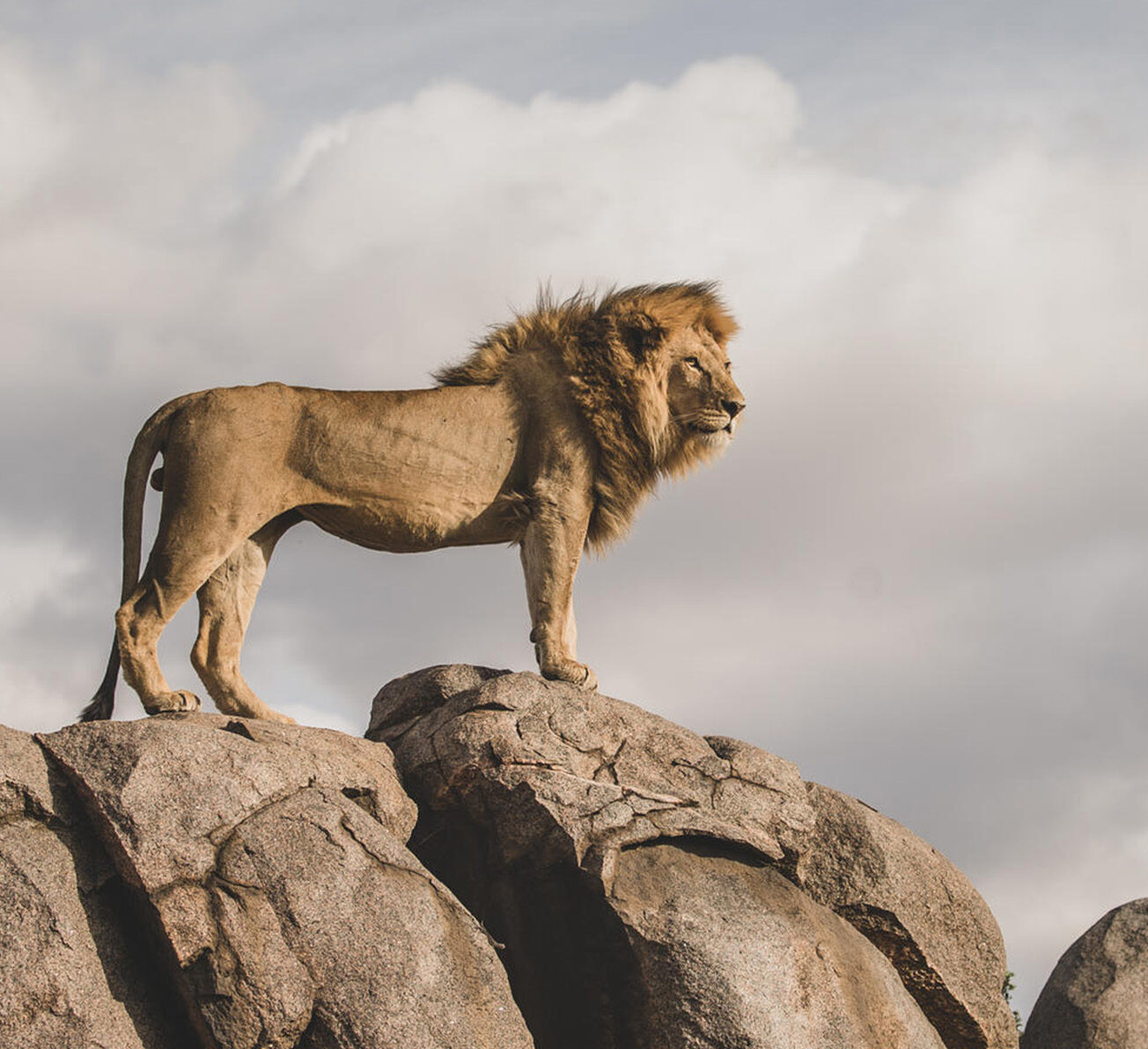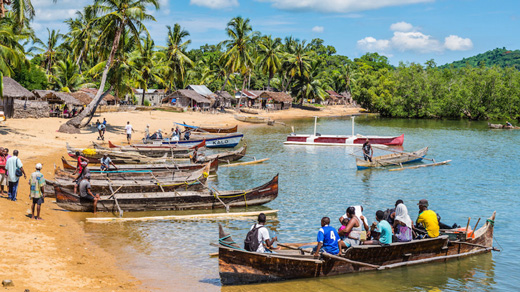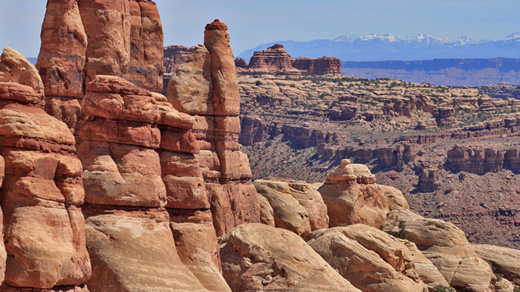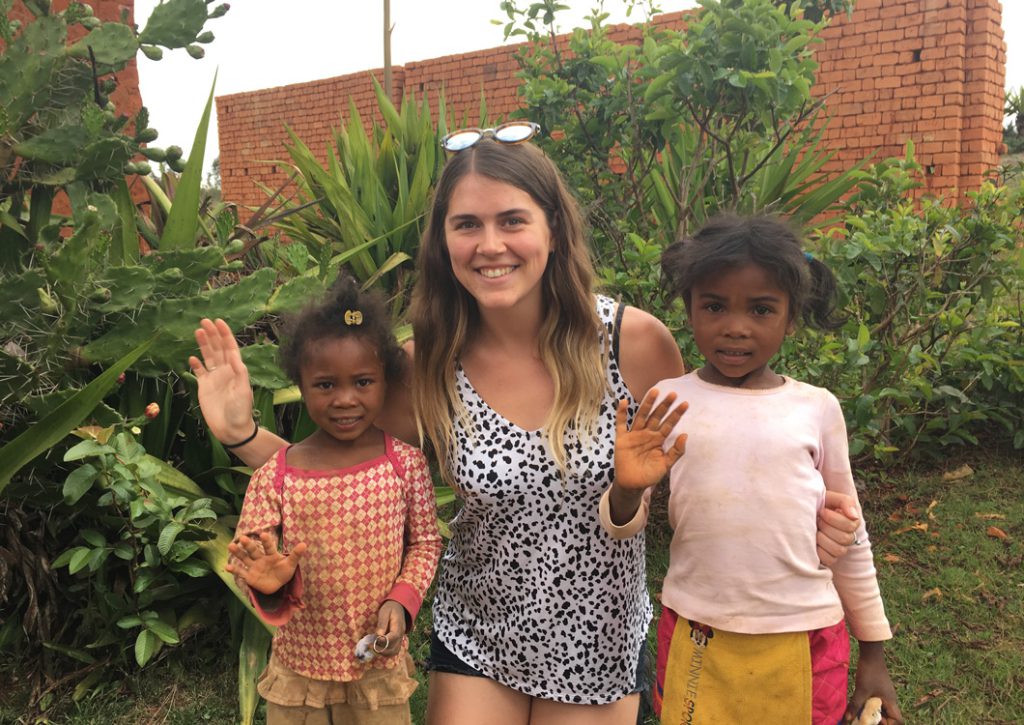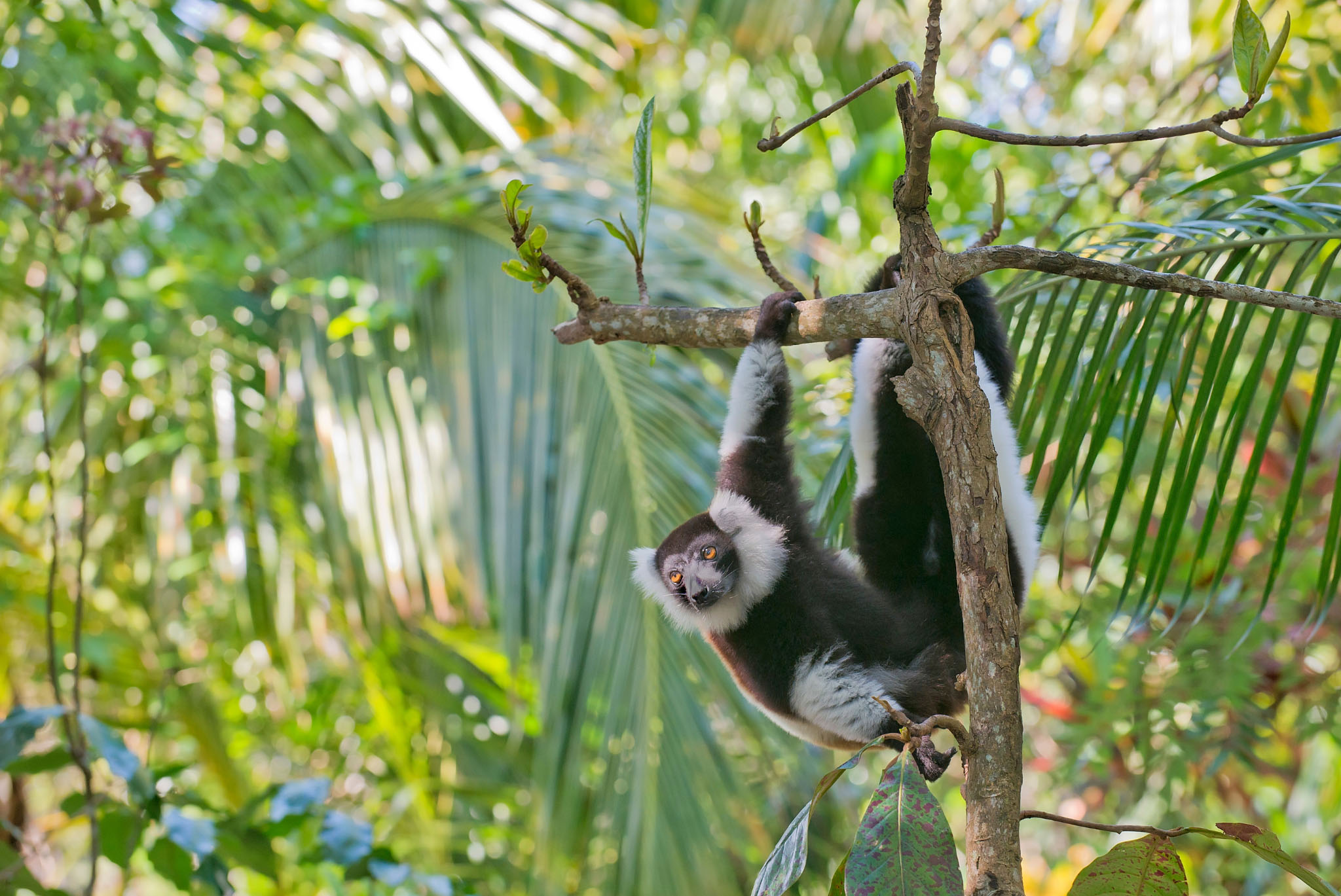
Madagascar
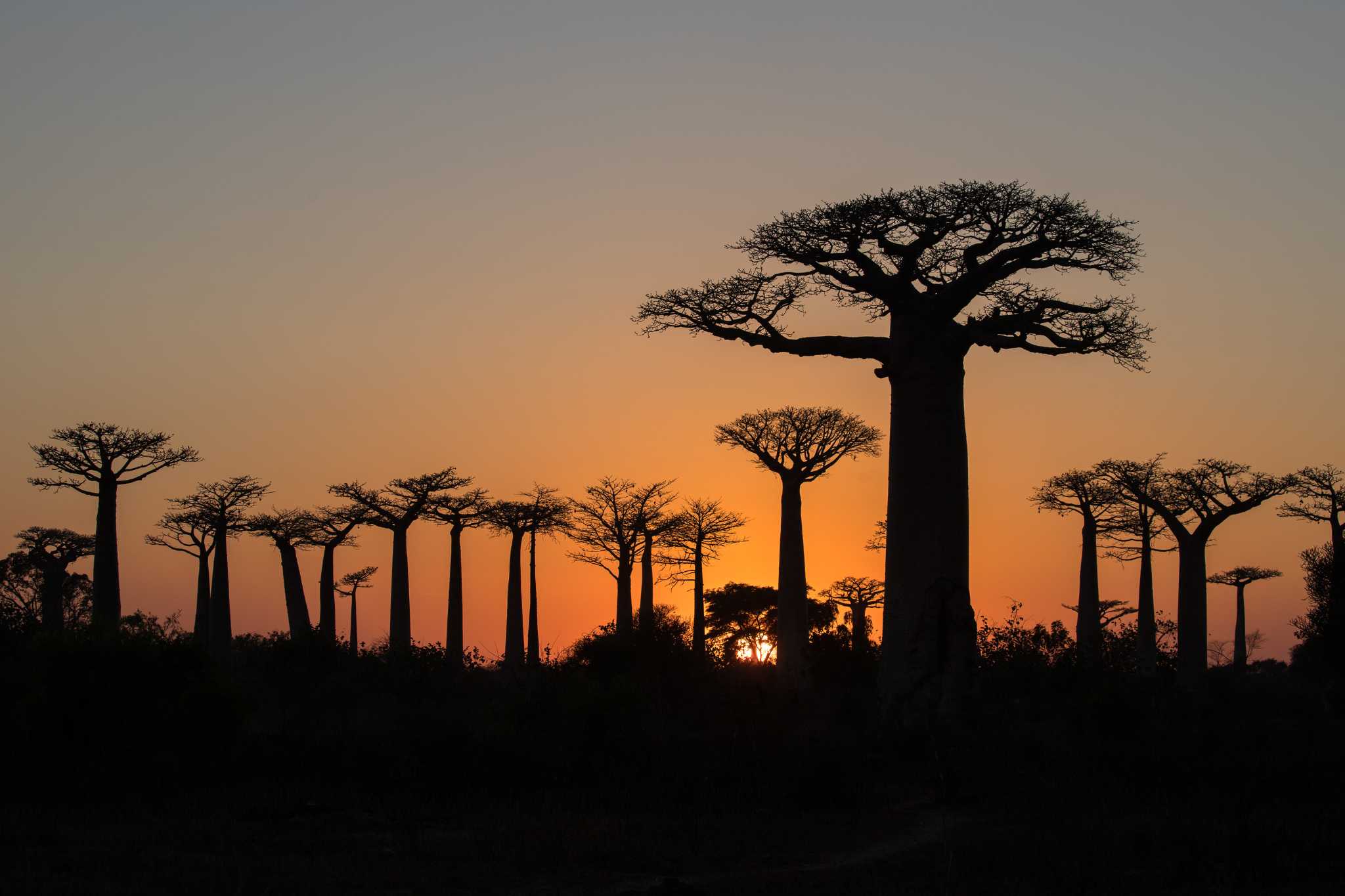
Madagascar Group Tours & Holidays
Amongst an array of African destinations, the island of Madagascar has an allure all its own. Separated from the mainland, it is home to a true menagerie of different animal and plant species, set against a diverse natural backdrop of mountainous terrain and sweeping savannah.
Whether you’re seeking wildlife encounters, or are looking to bask on the sands of one of Madagascar’s unspoilt beaches, this is one destination you don’t want to miss out on.
At Bench Africa, we have a passion for bringing Australians closer to some of Africa’s top experiences, which is why we endeavour to create inspiring journeys to this unrivalled, under-the-radar destination.
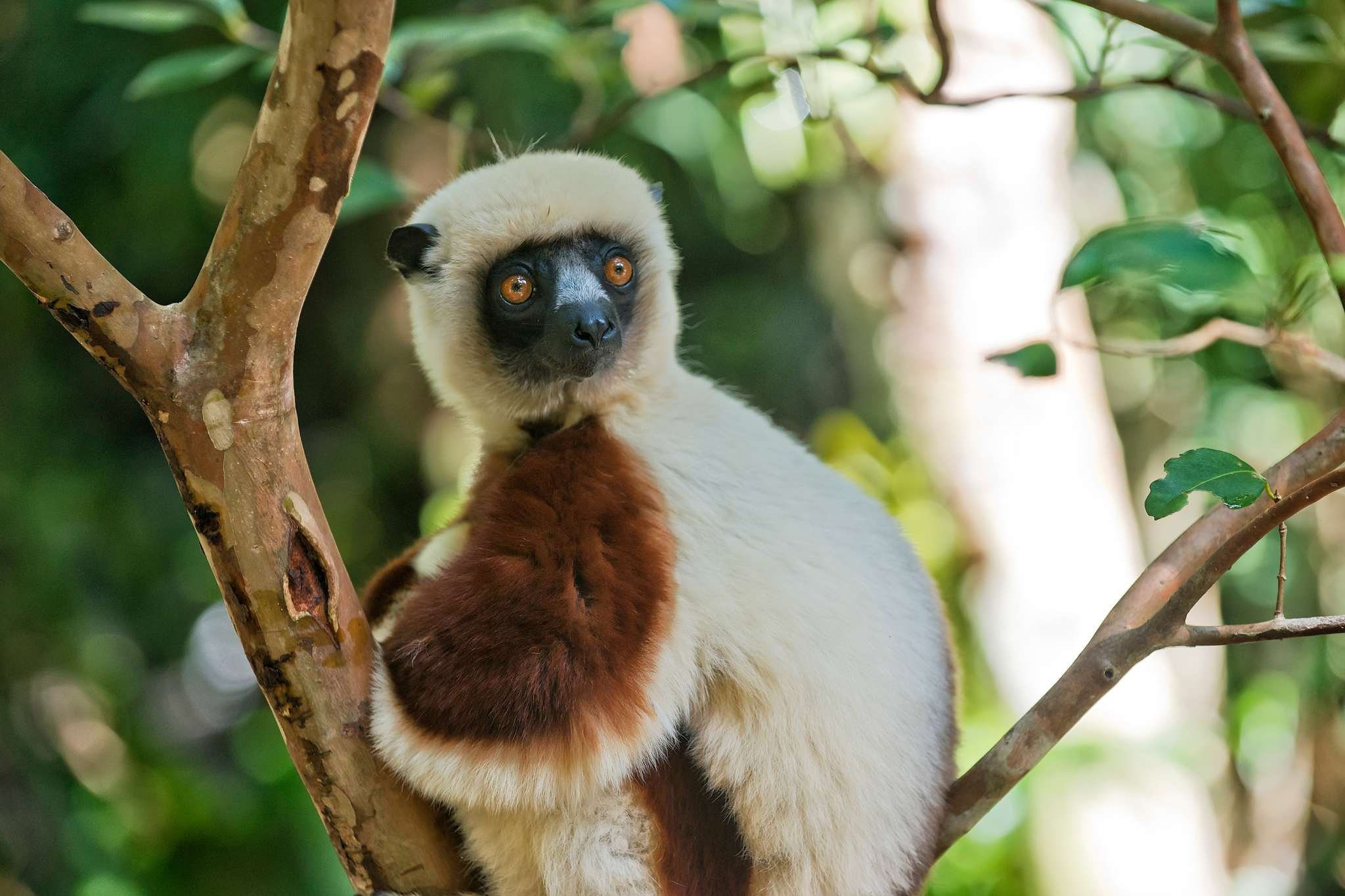
Introducing Madagascar
As the world’s fourth-largest island, Madagascar’s shores are exactly as you might picture them – pale golden sands fringed by palm trees, crystalline waters lapping at the coast. Interestingly enough, until 165 million years ago, Madagascar was still attached to the mainland, with the split creating an isolated sanctuary for a range of unique species to evolve. Today, Madagascar is home to 5 per cent of all the world’s animal and plant species, with 80 per cent native to the island itself, such as the lemur.
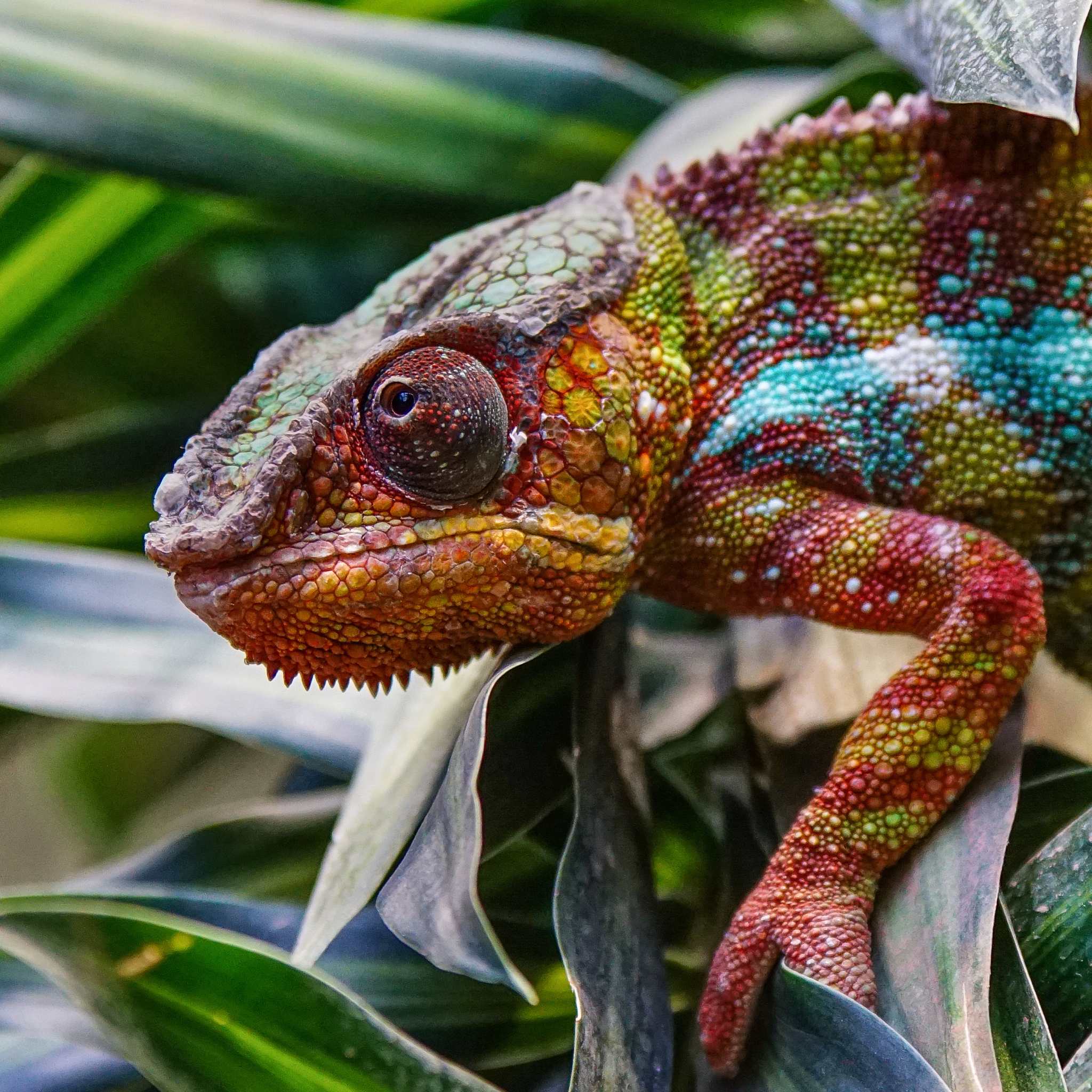
- Full Country Name Republic of Madagascar
- Area 587,401 sq km
- Population 24.57 million (UN 2015)
- Capital and largest City Antananarivo
- Religion 52% follow animist beliefs; about 41% Christian & remainder Muslim
- Time Zone Standard time is three hours in advance of Greenwich Mean Time
- Languages The official languages are Malagasy (which is related to Indonesian) and French. Local dialects are also spoken. English is not widely spoken
- Country Dialling Code +261
Madagascar highlights
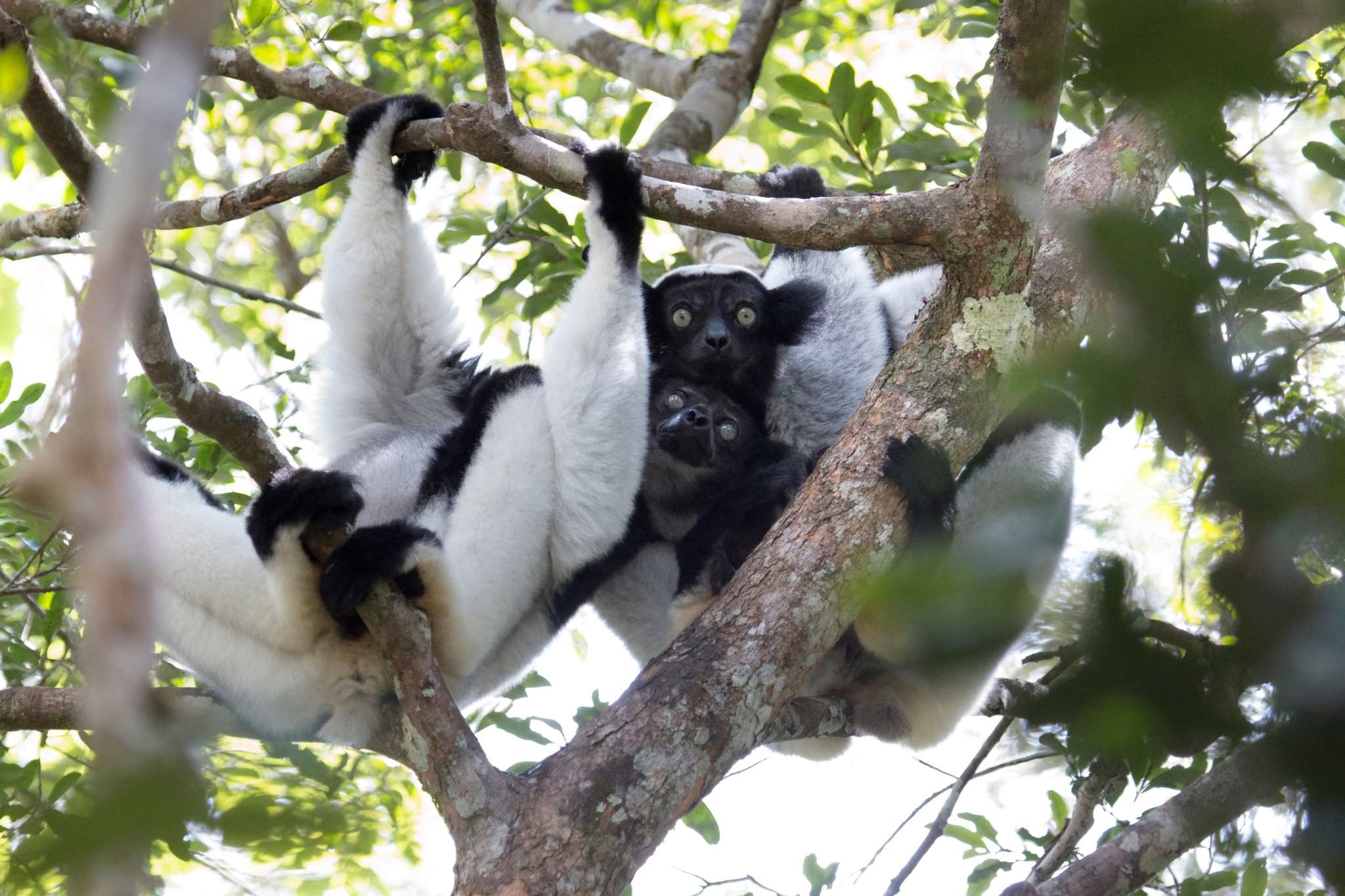
Andasibe National Park
In the lush eastern rainforests, Andasibe Mantadia is one of the best places to see Madagascar’s iconic lemurs. The haunting call of the indri carries through the trees while moss-covered trails wind through thick forest. Night walks reveal chameleons clinging to branches and frogs glowing under torchlight.
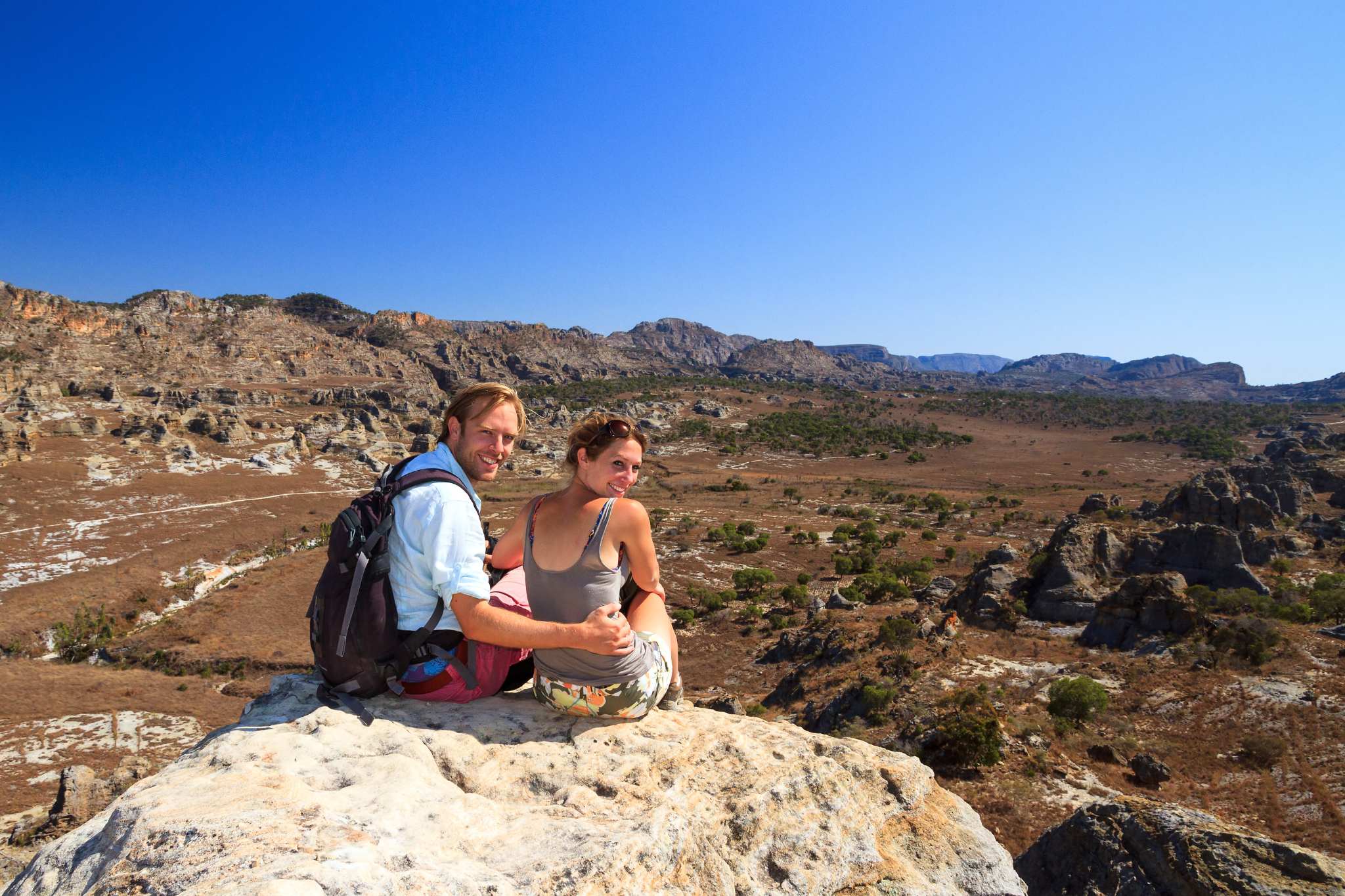
Isalo National Park
Isalo is a dramatic landscape of sandstone formations, deep canyons and natural swimming holes. Long walks pass through sun-bleached grasslands and narrow rock passages before reaching hidden waterfalls. As the sun sets the rocks take on a golden hue and the silence stretches across the plateau.
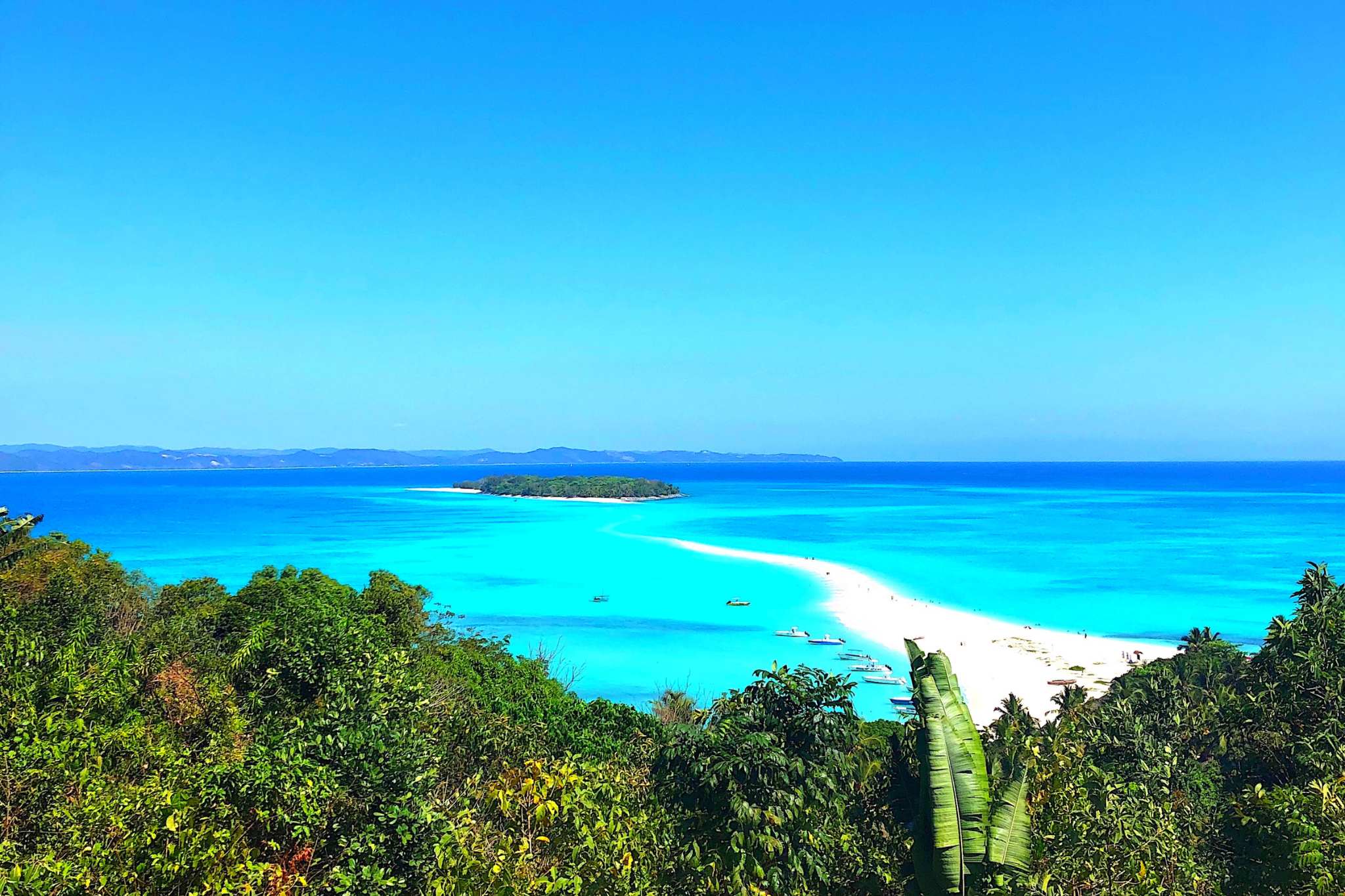
Nosy Be Archipelago
Off the northwest coast of Madagascar, Nosy Be and its surrounding islands are a place of warm seas and slow afternoons. White beaches and clear waters set the pace for sailing, snorkelling or simply watching the light change from a quiet spot by the shore.
Madagascar experiences
Essential trip information
-
Accommodation
-
Accommodations in Madagascar range from basic hotels to more upscale lodges and tented camps. Properties vary in size and amenities, with some being small and secluded while others are larger.
Occasionally, circumstances beyond Bench Africa’s control may require changes to the assigned accommodation. In such cases, advance notice will be given when possible, but up-to-date information on any substitute property may not always be available.
-
Clothing
-
General Information
In most of Madagascar, formal attire is unnecessary; therefore, we recommend keeping your luggage to the essentials. More formal clothing may only be needed when visiting upscale hotels or restaurants in the larger cities such as Antananarivo.
During daytime excursions and wildlife or nature activities, lightweight, breathable clothing is most practical. Neutral colours such as tan, beige, or olive are advisable to blend with the natural surroundings and to avoid attracting insects. Sun-protective headgear and sunglasses are essential.
Evenings and mornings, particularly in the central highlands, can be cool, so a warm fleece or jacket is recommended. A lightweight raincoat may also be useful during the wet season from December to March.
Comfortable walking shoes or boots are recommended for treks and nature walks, while sandals or flip-flops are suitable for use around lodges and camps. Long-sleeved shirts and trousers are advised in the evenings to reduce exposure to mosquitoes.
Many hotels and lodges offer laundry services, often at a small cost. If your itinerary is busy, it is advisable to confirm that laundry will be ready before departure.
Packing List
Essentials:
- Soft-sided bag for easy storage in vehicles and light aircraft
- Hat for sun protection
- Reusable water bottle
- Good quality, preferably polarized sunglasses
- Binoculars for wildlife and birdwatching
- Camera, charger, and adapter
- Travel adapter for charging devices
- Spare glasses (if you wear contact lenses)
- Comfortable walking shoes, trainers, and sandals
- Shorts or skirts
- Long trousers/slacks
- T-shirts and long-sleeved cotton shirts for cooler mornings and evenings
- Sweater, fleece, or lightweight raincoat for early morning or rainy-season excursions
- Warm jacket for higher altitude areas such as the central highlands
- Swimming costume for beaches and lodges with pools
Health and Safety:
- Basic medical kit (aspirins, Elastoplast, Imodium, antiseptic cream, etc.)
- Malaria tablets and antihistamine cream
- Insect repellent containing DEET (though many lodges provide sprays)
- Protective suntan lotion, especially for pale and sensitive skin
- Tissues or ‘wet wipes’
- Lip balm
-
Communication
-
Madagascar has a functioning mobile and satellite network, with coverage strongest in cities like Antananarivo, Nosy Be, and other major towns. International roaming is possible but often expensive. Travellers can purchase a local SIM card upon arrival, or use an eSIM, which allows for quick activation without swapping physical cards. Several providers, including Airalo, Holafly, and SimCorner, offer eSIM data plans suitable for Madagascar.
Wi-Fi is available in many hotels, lodges, and resorts in urban and tourist areas, though speeds and reliability can vary. In rural regions, national parks, and remote lodges, internet access may be limited or nonexistent, so plan accordingly if you need to stay connected.
To make the most of your connectivity: bring a device that supports eSIMs, check Wi-Fi availability at your accommodation, and monitor data usage to avoid unexpected costs.
-
Country Overview
-
Venture into national parks to experience profound moments in nature, relax on idyllic islands, stroll through heritage towns, and spot peculiar wildlife not found anywhere else on this earth. Madagascar is the world’s fourth largest island, ringed by golden beaches and palm trees, with an interior that is resplendent, from grassy plateaus to volcanoes and opaque forests and natural reserves.
With biodiversity to rival the Galapagos Islands, Madagascar is home to a remarkable array of flora and fauna, including lemurs and chameleons found nowhere else on Earth. Since it split from the mainland 165 million years ago, many species that are unique to the island have evolved, including 3,000 indigenous species of butterfly. The Hauts Plateau divides the country geographically, climatically, and culturally. The coastal strip east of this chain of high mountains is heavily forested, while the west is mainly savanna.
Beyond its famed biodiversity, the landscapes of Madagascar are incredibly unique. The Avenue of the Baobabs, lined with ancient giants, introduces visitors to Madagascar’s stunning natural wonders. Meanwhile, Tsingy de Bemaraha National Park showcases surreal limestone formations and deep canyons that are almost otherworldly!
In Antananarivo, the capital city, vibrant markets and historic sites offer a glimpse into Malagasy culture and heritage.
-
Electricity
-
Voltage & Frequency
The general voltage in Madagascar is 220 and the frequency is 50 Hz.
Socket Types in Madagascar
Type C
Type D
Type E
Type J
Type K -
Families
-
Considerations when Travelling with Children
We do not recommend travelling to Madagascar with children under the age of six, as the country is not malaria-free. The infrastructure can be basic, which often means long and bumpy drives that may be challenging for younger children. For families with older children, itineraries can be tailored to reduce travel times, avoid difficult roads, and still include opportunities to visit national parks, encounter lemurs, and enjoy time on the beach.
While dedicated child-friendly facilities are limited, many Malagasies are fond of children and will do what they can to accommodate families. Selecting lodges or eco-camps with family rooms or interconnecting bungalows can make stays more comfortable. Private guides and vehicles are recommended, allowing flexibility in pace, stops, and activities to suit children of different ages.
Older children should still follow malaria precautions, and it is advisable to consult a doctor regarding vaccinations and preventive medication before travel. Many lodges and resorts can cater to children’s dietary needs, though it is helpful to check in advance, especially in remote areas. Supervision is advised during excursions, particularly near water or wildlife. Activities such as guided nature walks, lemur spotting, and safe beach experiences can provide engaging and memorable experiences for families visiting Madagascar.
Accommodation
Family-friendly accommodation in Madagascar is limited but available. Some lodges and eco-camps provide family rooms, interconnecting bungalows, or suites that give families space and privacy. Many properties are small and intimate, so booking in advance is recommended. While dedicated children’s facilities are not widespread, many lodges can accommodate families’ needs, including dietary preferences and sleeping arrangements, especially when informed in advance.
Allow one of our consultants to design a holiday to suit the needs of you and your family.
-
Health
-
Health requirements vary from country to country. We recommend you speak to your GP or local Travel Doctor for up-to-date information and advice. The following information is to be used as a guide only.
Malaria: For travel to various regions in Africa, taking precautions against malaria is advisable. Consult with your doctor to determine the recommended prophylactic for your trip.
-
Insurance
-
Our Tips for Choosing Insurance
Insurance is a mandatory requirement for your travels, and we strongly advise you to secure Comprehensive Travel Insurance at the time of booking your trip.
Make sure you have a thorough understanding of the Terms and Conditions outlined in your policy and that you are well informed about your insurance coverage to ensure that you are adequately prepared for any unforeseen circumstances during your travels.
-
Internal Flights
-
Guidelines
It is recommended to check with your hotel or lodge to reconfirm all onward flights before departure to ensure flight timings are accurate. Most domestic and regional departure taxes are included in the ticket price, though some smaller airports may require local payment. Internal flights in Madagascar can occasionally be subject to delays due to weather or operational constraints, so building flexibility into your itinerary is always wise.
General Luggage & Weight Restrictions on Light Aircraft
Most charter companies strictly adhere to luggage allowances, which can vary from 15kgs to 20kgs per passenger, including camera equipment and hand luggage. It is imperative to check your itinerary for the accurate luggage weight allowance specified for your trip.
On certain light aircraft, passengers may also be subject to personal weight restrictions for safety reasons. It is advisable to check with us upon booking to ensure compliance with these guidelines and to address any specific concerns.
-
Money Matters
-
Currency
The unit of currency in Madagascar is the Malagasy Ariary (MGA).
You Should Know
Currency can only be bought at banks and official bureau de change in hotels and at the airport in Antananarivo. The Ariary is a non-convertible currency and cannot be exchanged back into tradable currency. Therefore, it is a good idea to exchange currency as required. Euros are the most practical and convenient currency to exchange into the local.
Credit cards are not accepted everywhere, so it is not advisable to rely solely on credit cards as a primary source of funds, particularly in places where card usage may be limited, such as remote lodges. It is recommended to inform your bank before using your credit card overseas, and using a PIN number is considered more secure than a signature. In Africa, Visa is the most widely accepted credit card, with larger establishments also accepting American Express and MasterCard. Diners Club is not generally accepted in most establishments.
-
Practicalities
-
Madagascar is unlike a typical holiday destination, and part of its charm comes from its raw, authentic character. Travellers should be prepared for basic infrastructure, long and often bumpy drives, and accommodations that range from simple lodges to small boutique properties.
Many visitors find the contrasts in daily life confronting. Communities often live with limited access to clean water, electricity, and healthcare, and the effects of deforestation and environmental pressures are visible across the island. Roads, transport, and services can feel underdeveloped, and local customs and traditions may differ markedly from what travelers are used to.
Despite these challenges, Madagascar offers extraordinary rewards. The island’s wildlife is unlike anywhere else on Earth, from lemurs leaping through the forests to chameleons and endemic bird species. The landscapes, from spiny forests to limestone karsts, pristine beaches, and baobab-lined avenues, are stunning and unique.
Travellers who approach Madagascar with an open mind and a sense of adventure are often deeply moved by their experiences. Being prepared for the realities of daily life and the physical demands of travel will help ensure a safe, respectful, and unforgettable journey.
-
Road Travel
-
Road Conditions
Madagascar, like many countries in Africa, is classified as a developing nation. It’s important to note that certain areas may have infrastructure that doesn’t meet the standards commonly found in more developed regions. Specifically, some roads can be quite rough, and journeys might take longer than anticipated.
Despite this, the breath-taking views, spectacular scenery and potential to witness village life during these journeys often make the trip highly worthwhile.
Road Safety
Established in 1969, Bench Africa has decades of experience in planning safaris with safety as a priority. We recommend travelling with a reputable ground operator that follows strict speed and road safety guidelines. Booking through Bench Africa ensures you are in capable hands throughout your journey.
-
Safety and Security
-
General Safety
- Doors should be locked when driving after dark.
- Don’t walk alone at night in city streets, isolated beaches or remote areas.
- Travellers should not display unnecessary signs of wealth (e.g. mobile phones, money, and expensive jewellery) on the streets.
- Leave all your valuables including passports locked in the room safe where available.
Safety on Safari
When staying at safari camps and lodges, they will often give you a safety briefing and there are several key points to keep in mind regarding wildlife respect and safety:
- Pay close attention to the camp staff and guides.
- Observe animals silently, minimising disturbance to their natural activities. Loud talking on game drives can frighten the animals away.
- Never attempt to attract an animal’s attention. Avoid imitating animal sounds, clapping your hands, pounding the vehicle, or throwing objects.
- Respect your driver/guide’s judgement regarding proximity to lions, cheetahs, and leopards. Avoid insisting on getting the vehicle closer for a better photograph, as it can disrupt a hunt or cause animals to abandon a hard-earned meal.
- Dispose of litter properly, as litter on the ground can harm or poison animals and birds.
- Never attempt to feed or approach any wild animal on foot, particularly near lodges or in campsites where animals may have become accustomed to human visitors.
- Refrain from smoking on game drives, as the dry African bush is highly flammable, and a flash fire can pose a threat to animals and their habitat.
-
Shopping
-
There is a wealth of beautiful souvenirs and crafts available for purchase. Look out for vibrant materials, sisal bags, wood or stone carvings, unique artwork, handcrafted jewellery, woven goods, and appealing basketry. Bargaining is a customary practice at markets and roadside stalls but not typically in shops. Locals may initially quote inflated “tourist prices,” and negotiations are expected until a fair value is reached.
Cash in the local currency is widely accepted, as well as US Dollars, while credit cards may only be suitable for larger shops.
Bench Africa is committed to actively supporting anti-poaching initiatives. As part of our dedication to responsible tourism, we emphasise ethical practices and discourage the purchase of items associated with illegal wildlife trade, such as ivory, rhino horn, animal furs/hides, and other prohibited materials. Our commitment aligns with the ban on hunting and the protection of wildlife, reinforcing our stance against activities that harm or exploit endangered species.
-
Tipping
-
Tipping Guidelines
Tipping is customary in Madagascar, though not as widespread as in the United States or Europe. It is discretionary, a way of expressing gratitude for exceptional service.
To assist with budgeting, the following guidelines are provided in US Dollars:
Driver (per person per full day): $5.00
Guide (per person per full day): $10.00
Hotel porters (per bag): $1.00
A la carte dining (percentage of bill): 10% -
Useful Numbers
-
Australia does not have an Embassy or Consulate in Madagascar, so we suggest you contact the Australian High Commission in Mauritius.
Consulate General of the Republic of Madagascar in Australia
Level 4 /47 York Street Sydney NSW
2000, Australia Tel: +61 2 9299 2290Australian High Commission (Mauritius)
2nd Floor, Rogers House
5 President John Kennedy Street Port Louis, Mauritius
Tel: +230 202 0160 -
Visa Information
-
Do I Need a Visa to Travel to Madagascar?
We do not provide advice on specific visas as regulations are subject to change and can vary from person to person. Please refer to Smart Traveller for the most up-to-date information. We advise checking visa requirements at the time of booking and again before travelling to keep abreast of any changes that may have occurred.
Visa requirements vary between countries, and it is essential that you acquire the appropriate visa for your journey and ascertain whether it can be applied for in advance or on arrival, in which case you will need the exact physical money. Often, your passport must be valid for at least six months beyond your intended stay, with a minimum of two blank pages (a double page). You will be required to have onward travel documents and sufficient funds. It is advisable to carry photocopies of all important documents.
It is your personal responsibility to confirm that your passport is valid, contains the necessary visa, and that you have all required travel documents.
You Should Know
- It is important to have two blank pages side by side in your passport for the entry and exit stamps to be issued. If there is insufficient space, entry into the country may be denied.
- Visitors must also be in possession of onward travel documents and have sufficient funds for the duration of their stay.
Please double check entry requirements on the Smart Traveller website as this may change at any time.
-
When to Travel
-
Climate
Madagascar typically experiences a subtropical climate with distinct wet and dry seasons. The hot, rainy period spans from November to April, followed by a cooler, drier season from May to October. In general, the west coast tends to be drier than the east coast and the central highlands. Conversely, the far south and southwest regions represent semi-desert areas with minimal rainfall. The east coast receives the highest amount of rainfall, leading to hot and humid conditions during the wet season. Additionally, this region is prone to cyclones, particularly between February and March.
Peak Season: July – August
Peak season offers warm, balmy days and cool, fresh nights.
Shoulder Seasons: April – June, September – December
Shoulder season offers warmer weather and much fewer people.
Bench Africa on Instagram
